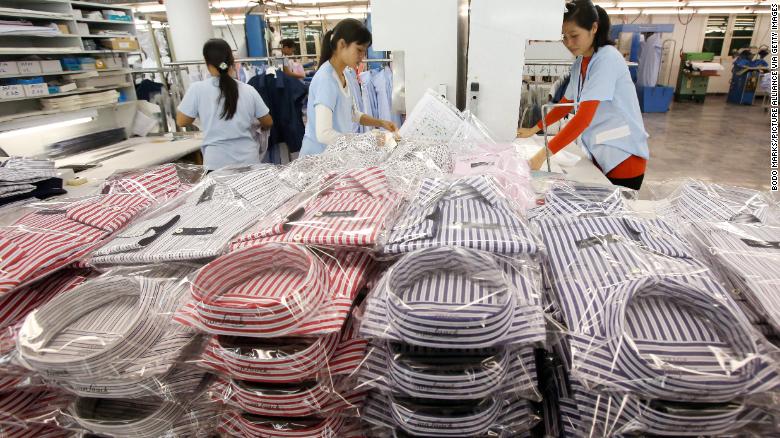Media Report

- CNN reports: "US tariffs are prompting companies to move some production out of China, but it's not going where President Donald Trump would prefer.The trade war has made more than $250 billion of Chinese exports more expensive for Americans — from leather belts to refrigerators to motorcycles. The disruption to the world's biggest trading relationship has electronics manufacturers, industrial machinery makers and fashion brands working on shifting some of their assembly lines.'We are flooded by inquiries,' said William Ma, group managing director of Kerry Logistics, a Hong Kong-based firm that helps companies around the world manage their supply chains. 'It all happens after the trade war.' Many firms are keeping much of their operations in China, which offers a giant domestic market and advantages that businesses struggle to find elsewhere. But those that are moving aren't flocking to the United States. Instead, they're looking to transfer work to other Asian countries."
- CNBC reports: "President Donald Trump said Friday that China 'wants to make a deal' on trade with the United States, but he also warned that any pact has to be 'reciprocal.' Trump's comments sent the Dow Jones Industrial Average to its high of the day, briefly trading more than 200 points higher in session highs. But White House officials immediately after Trump's remarks told CNBC that people should not read too much into those claims, because there is no sign of a deal coming soon.After CNBC aired that qualification, the DJIA gave back nearly all of its gains seen on Trump's statement."
- The Wall Street Journal reports: "One upside of the U.S.-China trade dispute: It is keeping the cost of Thanksgiving down. The tariffs that President Trump's administration has placed on Chinese products should end up raising prices in the U.S., but China's retaliatory moves are having the opposite effect. Tariffs on U.S. agricultural products have damped Chinese demand, boosting supplies of some staples of the Thanksgiving table. Cranberry farmers, who until recently were benefiting from Chinese consumers' newfound love for the fruit, are dealing with a supply glut that has pushed prices below the cost of production. Tariffs on U.S. pork have pushed prices so low it has had spillover effects on other products. Tyson Foods on Tuesday cut its 2019 sales forecast as a result of lower pork and poultry prices. The Labor Department's inflation report on Wednesday showed prices of raw poultry excluding chicken—mostly turkey—were down 4.9% last month from a year earlier."
Calendar
- 2018-11-15 China and the U.S. Offer Rival Visions of the Pacific at the ASEAN Summit
- 2018-11-14 Why Young Pakistanis Are Learning Chinese
- 2018-11-13 Xi Expands China’s Footprint in the Pacific While Trump Stays Home
- 2018-11-12 China calls for open world economy but work remains on landmark trade pact
- 2018-11-11 Bilateral ties, military movement key points at US-China meeting
- 2018-11-09 Forget the trade war, China's economy has other big problems
- 2018-11-08 Trump’s Tariffs Have Fully Kicked In—Yet China’s Exports Grow
- 2018-11-07 Here's what the US election results mean for Trump's trade war with China
- 2018-11-06 China open to trade talks with US, says Wang Qishan
- 2018-11-05 Xi tells the world China will boost imports while swiping at Trump’s ‘law of the jungle’
News
- CNN The trade war is pushing business out of China, but not into America
- CNBC Trump says China wants to make trade deal, but White House officials warn no sign of pact
- The Wall Street Journal Thank China for a Cheaper Thanksgiving
- Bloomberg Trump Says He's Optimistic About Trade Deal After Receiving China Response
- USA Today Chinese authorities inspect hotels after video exposes unsanitary cleaning practices
- The Washington Post Chinese schoolchildren burned by UV lamp left on in the classroom. Again.
- National Geographic China's ban on trash imports shifts waste crisis to Southeast Asia
- Business Insider A top economist warns Trump's China trade war is doing more damage to the US economy than people think
- CNN Trump on China: 'Can't have trade that's meant for stupid people'
- The Smithsonian Mini Terracotta Army Unearthed in China
Commentary
- The Washington Post Aiming to contain China would be a historic blunder
- Financial Times China is winning the trade war with America for now
- The Washington Post America's overt payback for China's covert espionage
